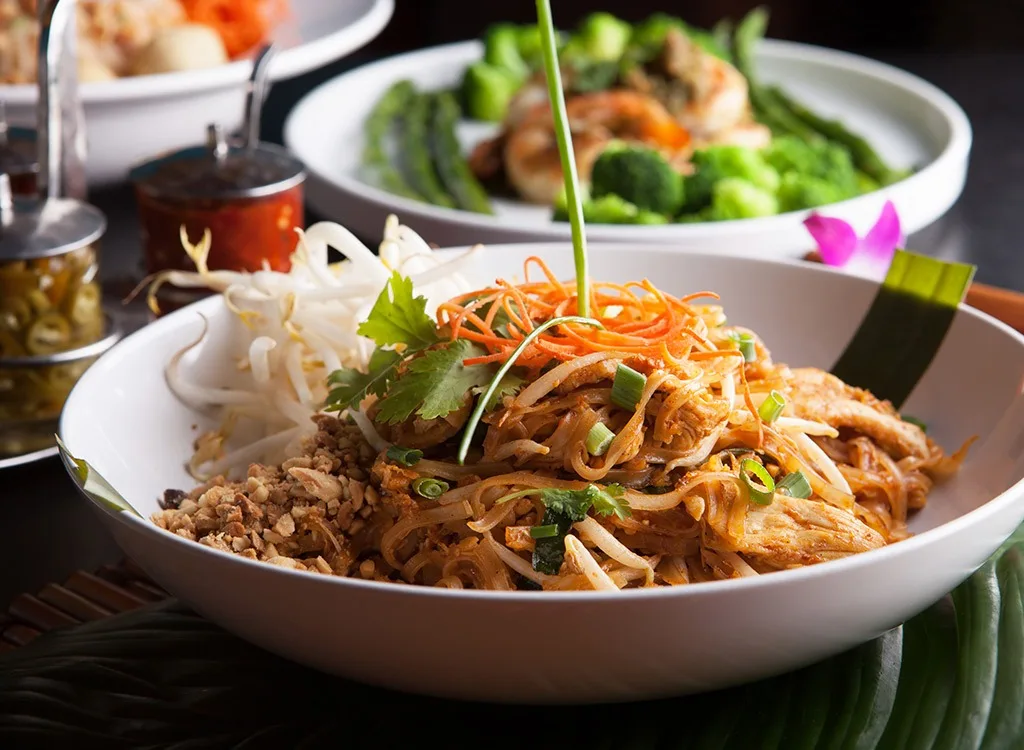Is Thai Food Healthy

Thai food has gained popularity worldwide in recent years due to its unique blend of flavors, aromas, and ingredients. But beyond its taste, many people question whether Thai food is healthy. The answer is that it depends on the dish, preparation method, and ingredients used. Here’s a closer look at the health benefits and drawbacks of Thai food.
Pros Of Thai Food:
- Fresh ingredients: Thai cuisine is known for its use of fresh ingredients such as herbs, spices, vegetables, and lean meats. These ingredients are not only flavorful but also rich in vitamins and minerals, contributing to a healthy diet.
- Low calorie: Many Thai dishes are low in calories, making them a good option for those watching their weight. For example, Tom Yum soup, a staple of Thai cuisine, is low in calories and high in fiber, making it a filling and healthy dish.
- Healthy oils: Thai cuisine often uses healthy oils such as coconut oil, which is rich in medium-chain triglycerides (MCTs). MCTs are a type of fat that is quickly metabolized by the body, making it a good source of energy. Additionally, coconut oil is also believed to aid in weight loss and improve heart health.
- Spices and herbs: Thai food is known for its use of herbs and spices, which not only enhance the flavor of dishes but also offer numerous health benefits. For example, ginger has anti-inflammatory properties, turmeric is a powerful antioxidant, and chili peppers can boost metabolism.
- Fiber-rich: Many Thai dishes, such as Pad Thai, are rich in fiber, which helps regulate digestion and maintain a healthy weight.
Cons Of Thai Food:
- High sodium: Thai food can be high in sodium, which can lead to high blood pressure and other health problems. This is especially true for dishes like Tom Yum soup and Pad Thai, which are often loaded with salt to enhance their flavor.
- High in sugar: Many Thai dishes are also high in sugar, which can contribute to weight gain and other health problems. For example, mango sticky rice, a popular Thai dessert, is high in sugar and calories.
- Use of unhealthy oils: While some Thai dishes use healthy oils such as coconut oil, others use unhealthy oils such as palm oil, which is high in unhealthy saturated fats. These oils can increase the risk of heart disease and other health problems.
- High calorie: Some Thai dishes, such as Pad Thai, are high in calories, which can contribute to weight gain and other health problems. This is especially true when these dishes are prepared with a heavy hand on the oil and sugar.
Thai food can be both healthy and unhealthy, depending on the dish, preparation method, and ingredients used. To ensure a healthy meal, it’s best to choose dishes that are made with fresh ingredients, low in sodium, and use healthy oils such as coconut oil. Additionally, it’s important to watch portion sizes and avoid dishes that are high in sugar and unhealthy oils. With a little bit of care and attention, Thai food can be a delicious and nutritious part of a healthy diet.








